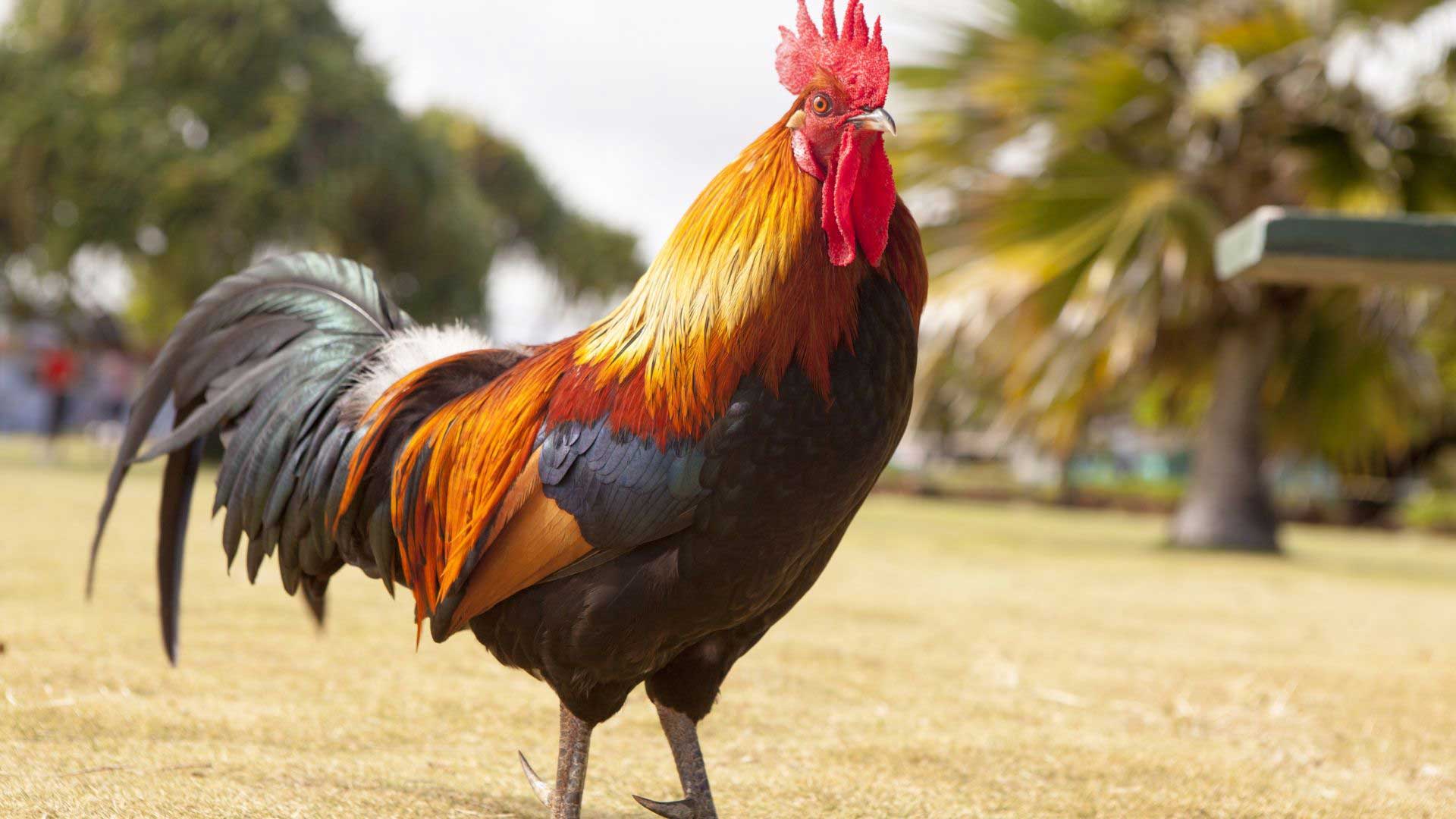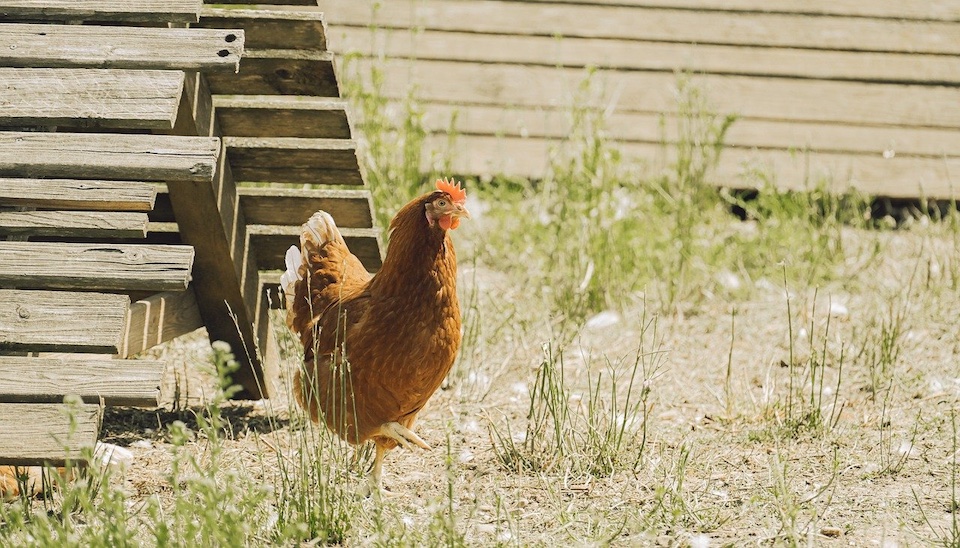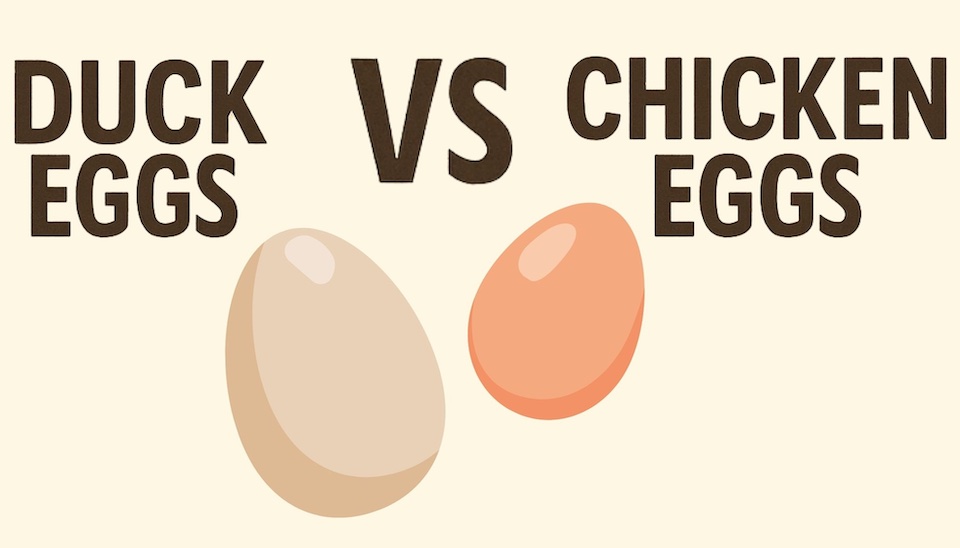Benefits of a Rooster in the Flock
Should You Get a Rooster?
Wondering about the benefits of having a rooster in your flock? Chickens will happily lay eggs without a rooster, but a rooster is needed to fertilise the eggs to hatch chicks. A rooster also helps maintain peace among the hens and keeps them safe by alerting them to predators.
The Benefits of Having a Rooster
First, let’s consider the main benefits of having a rooster in your flock:
- Fertilise eggs – No rooster = No chicks. Roosters are necessary if you want to hatch your own eggs.
- Protect the flock – Roosters act as natural protectors, watching for predators and sounding the alarm.
- Keep the peace – Roosters often help prevent fighting and bullying among hens.
- Attractive addition – Roosters can add beauty to your coop with their striking feathers.
If You Want Chicks, You Need a Rooster
Chickens lay eggs without a rooster, but for the eggs to hatch into chicks, they need to be fertilised. The biggest advantage of having a rooster is that he fertilises the eggs, making it possible to hatch your own chicks. Without a rooster, you’d need to buy fertilised eggs or ask for them, which can be inconvenient. By keeping a rooster, you have a natural, cost-free way to grow your flock whenever you want.
Roosters Protect the Flock
A rooster is a natural protector of the flock. He keeps an eye out for predators and sounds the alarm if there’s any danger. This is especially helpful if your chickens free-range, as roosters will alert them to hawks or other threats, giving the hens time to take cover.
Roosters also help find safe nesting spots and will often guard the hens while they lay eggs or dust bathe. Even though hens can spot food and danger themselves, the rooster’s protective instinct adds extra security to the flock.
Now, admittedly, in a backyard flock, hens are just as likely as a rooster to spot the scraps or a handful of mealworms. But the evolutionary instinct is still there and hens like having a rooster as a protector and provider.
Roosters Keep the Peace
Chicken flocks have a rigid pecking order. Hens will fight brutally for their place and some hens are just plain bullies. Roosters, on the other hand, usually don't clash with the hens. Nor will they participate in bullying. Also, they frequently break up hen-fights. While chickens lay eggs without a rooster, having one can lead to a more harmonious group of hens.
Although uncrowded hens generally get along with each other, a flock with a rooster is usually more peaceful. There is less fighting for the top spot by the hens. Roosters are the natural leader because their physique is more muscular and substantial. If you watch hens which have a rooster in the flock, they tend to be more relaxed and less likely to indulge in bullying or fights.
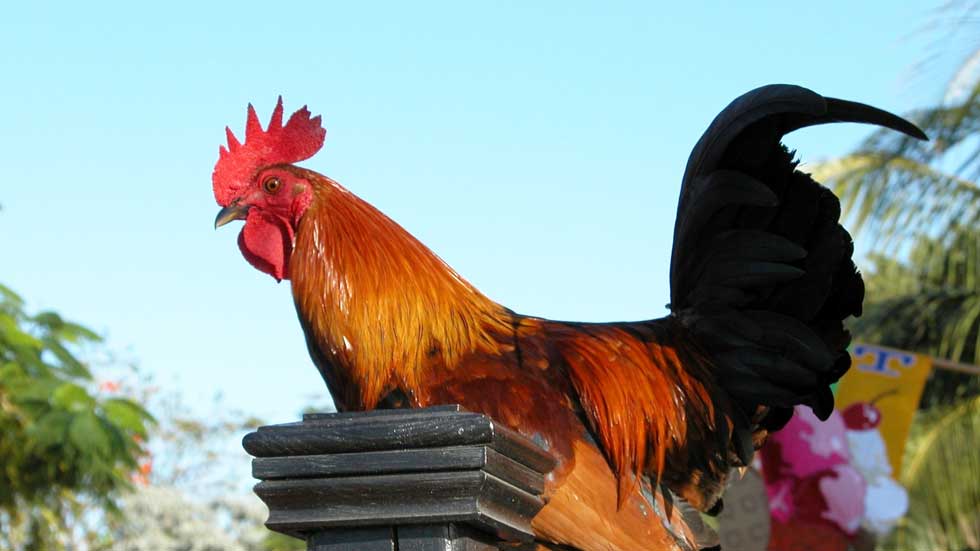
Roosters Can Be Lovely
There’s something special about having a rooster in your flock. Watching him proudly strut around, calling the hens over to a tasty treat or dancing to woo them, can be a delight. Roosters bring charm and personality to a flock, making them a beautiful addition to any backyard. Plus, their protective nature and ability to fertilise eggs mean they’re more than just good looks!
Reasons not to Have a Rooster
While roosters can be great for a flock, they’re not for everyone. There are some reasons you might choose not to have a rooster.
Roosters Crow—A Lot!
When you conjure up the image of a rooster crowing on the apex of a barn, you think of a rooster announcing the first morning light. Now take that image and forget it — Roosters crow at all hours and for almost any reason.
Some things which can get a rooster crowing include:
- Predators
- Light of the moon
- Passing headlights
- And any other reason they think of
Roosters will crow, no matter what you do. It’s their instinct.
So if you have small children or you don’t sleep well yourself, a rooster might take a bit of getting used to. And if you have neighbours nearby who won't appreciate a midnight recital, a rooster mightn’t be for you.
Some Councils don't Allow Roosters
In urban and suburban areas, there are strict regulations about keeping chickens. These laws often determine how much land you need as well as how many chooks you can have. And in the interest of friendly neighbourhood relations and reducing urban noise pollution, they often restrict the keeping of roosters.
Before purchasing a rooster, check with the local council to avoid unnecessary conflict or potential fines.
You Don’t Have Enough Hens to Keep a Rooster
It is best to have at least 6 hens if you are considering keeping a rooster.
Roosters are happier when they have a flock of hens to share the love. Hens prefer a larger flock if there is a rooster too, because it prevents the rooster playing favourites and stops any one hen from getting too much attention. An unsatisfied rooster can harass the chickens, even causing feather loss or stopping them from eating.
You Have a Mixed Flock
There’s nothing wrong with keeping a rooster in most mixed flocks. But if you have a significant discrepancy in the size of birds, it may cause problems.
For example, a big Rhode Island Red rooster could cause serious injury to a bantam hen. If you want to introduce a rooster to a mixed-breed flock, consider getting a smaller breed that is in proportion with the size of your smallest hens
Some Roosters Are Mean
Some customers have said they don’t keep roosters because they are mean to the hens. We agree. Some roosters take what they want without asking.
However, nice roosters generally woo the hens. Once a rooster has chosen a hen, he will dance around her, cluck to her and possibly present her with food. If a hen crouches for the rooster, she is indicating that she accepts the advances. Nice roosters rarely go after a hen that tries to evade them.
While it is unclear why some roosters are more chivalrous than others, it may be genetic. If you have ended up with an unkind rooster, think about replacing him with a Romeo-type for the hens.
Competing roosters are also meaner, both to hens and people. Because they are trying to protect their territory, their natural aggression is constantly aroused. A common behaviour when you have two or more roosters, is for one rooster to attack the other while it is mating and then mount the same hen. This is traumatic for the hens and may cause injury.
Roosters can also cause injury to hens by accident. Usually, they damage the feathers on a hen’s back when they are treading on her.
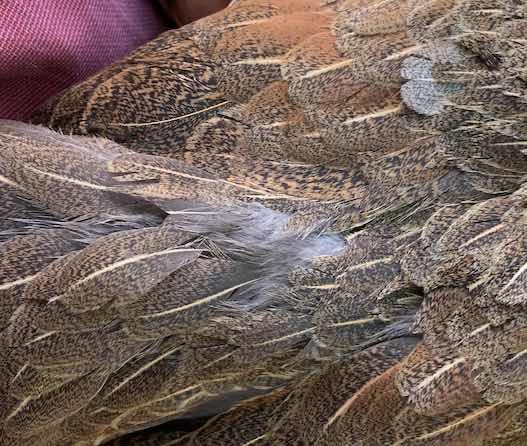
They can also cause feather loss and skin damage on the back of the hen's neck, where they hold on during mating, though this is more common where they are being attacked by another rooster.
Skin and feather damage may result from:
- a larger rooster
- a small hen
- too much attention due to having too few hens
- the rooster having a favourite hen
- having multiple roosters
The feather loss is uncomfortable for the hen. It may also lead to feather pecking and death. The best treatment for this damage is to remove the affected hen and treat the feather loss. If it continues to be an issue, get a chicken saddle to protect any suffering hen from the rooster’s claws.
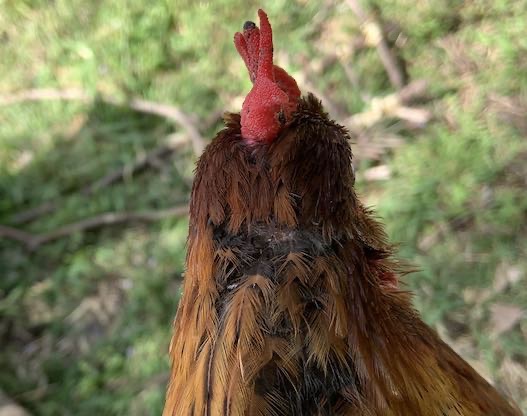
FAQ: Roosters in the Flock
What does a rooster do?
A rooster helps protect the flock by alerting hens to danger and fertilises eggs so they can hatch into chicks.
Do chickens need a rooster to lay eggs?
No, hens lay eggs without a rooster, but those eggs won’t be fertilised and won’t hatch.
What are the benefits of having a rooster?
Roosters fertilise eggs, protect hens from predators, and help keep peace among the flock by reducing fighting.
How many hens per rooster?
It’s recommended to have at least 6 hens per rooster to prevent any one hen from receiving too much attention.
How do roosters fertilise eggs?
Roosters fertilise eggs through mating, which allows the eggs laid by hens to become fertilised and hatch into chicks.
What is the point of having a rooster?
The main reason to have a rooster is for fertilising eggs and providing natural protection for the flock.
Do roosters need special care?
Roosters generally don’t need special care beyond the usual chicken-keeping practices, but ensure they have enough hens to prevent over-attention to any single hen.
Can you keep more than one rooster?
Yes, but be cautious—multiple roosters can fight over territory or hens, which can cause stress or injury in the flock. It’s best to have enough space and hens if you plan on keeping more than one rooster.
Advice for Keeping a Flock with a Rooster Happy
Keeping a flock with a rooster happy is pretty simple. Have one rooster and plenty of hens.
Remove chicks that turn out to be roosters before they get big enough to upset the status quo, and ensure your rooster is a lover, not a fighter. If you end up with a rooster that attacks people or is mean to the hens, remove it so it cannot pass its genetics onto the next generation.
For more flock management tips and to simplify your chicken-keeping routine, check out our Automatic Chicken Feeders and Automatic Chicken Drinkers.
Also read: How to solve a broody hen

